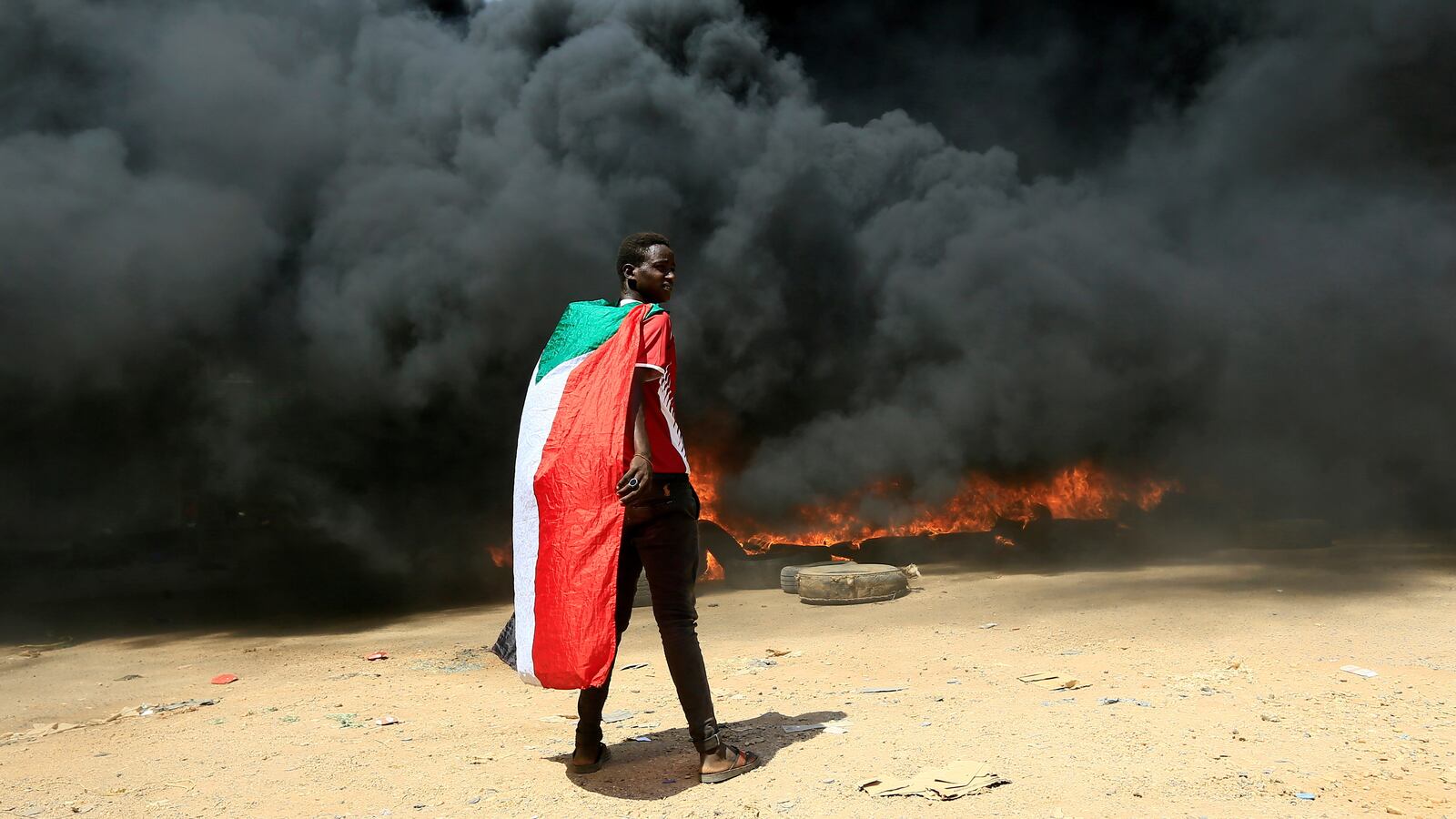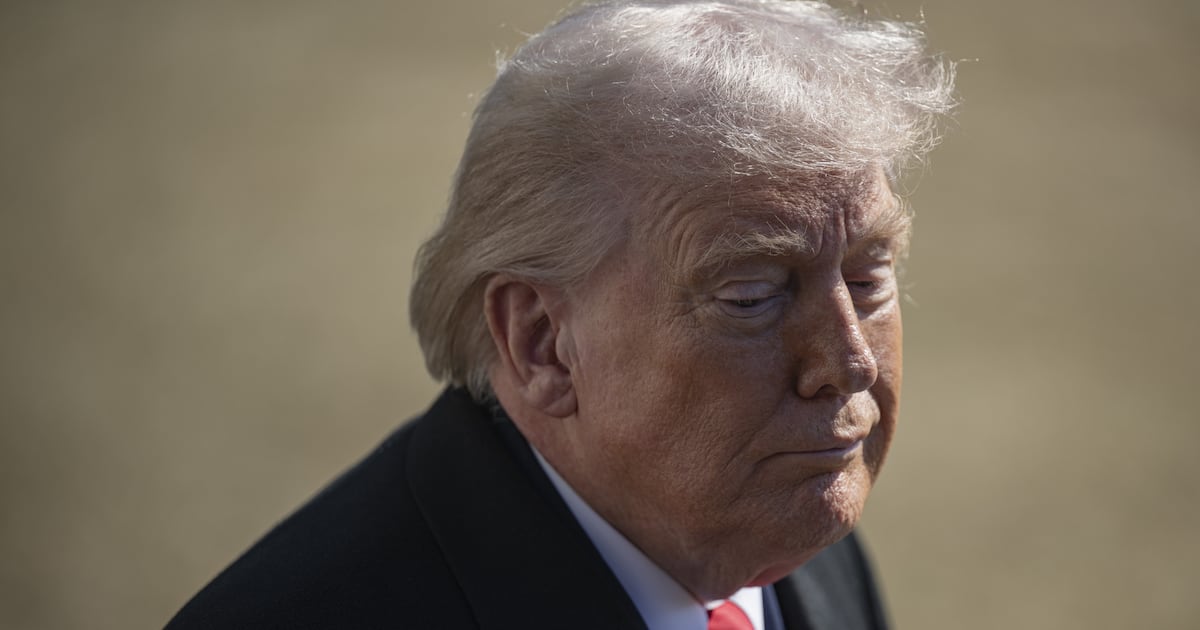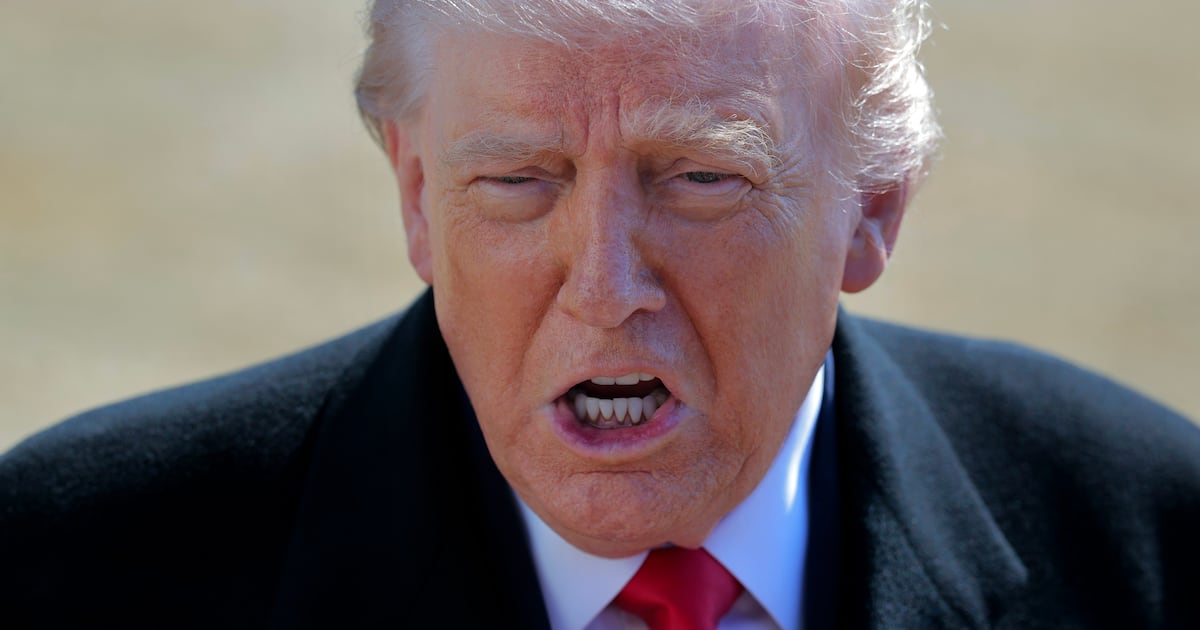The tenuous peace that has kept Sudan on edge since a failed military coup attempt in September has been shattered.
On Monday, the Sudanese military staged a violent coup, cutting off the nation’s internet access and taking the country’s civilian leaders into custody at an undisclosed location, a move that U.S. Special Envoy to the Horn of Africa Jeffrey Feltman said left the Biden administration “deeply alarmed.” By day’s end, the U.S. embassy in Khartoum had warned all Americans in the country to “shelter in place and remain aware of their surroundings” and that armed forces were blocking areas in and out of the capital city.
On Monday, the national television station played only nationalist songs and ran photos of the Nile River instead of regular programming. Large parts of the population were also blocked from accessing the internet and in many areas phone service was also blocked, potentially to stop people from communicating about protesting the coup. Gen. Abdel Fattah al-Burhan, head of the military, later dissolved parliament and declared a state of emergency.
Sudan has been on the brink of war since pro-democracy protesters forced the ouster of its longtime authoritarian leader Omar al-Bashir two years ago. The transition to democracy has been fraught with tension between those who toppled al-Bashir’s government and the military, which is backed by conservative Islamists, warlords, militia leaders, and former Bashir loyalists.
The arrest of the current Prime Minister Abdalla Hamdok, his wife, and at least five others from his cabinet drew thousands of people to the streets of Khartoum, where they set fire to tires and blocked traffic. Military supporters and officers from the Rapid Support Forces clashed with those more liberal factions of society, injuring at least a dozen people.
Hamdok’s office then called for people to protest. “We call on the Sudanese people to protest using all peaceful means possible,” his office urged. “To take back their revolution from the thieves.”
The Associated Press named the others detained as Industry Minister Ibrahim al-Sheikh; Information Minister Hamza Baloul; Mohammed al-Fiky Suliman, a member of the country’s transitional body called the Sovereign Council, as well as Hamdok’s media adviser Faisal Mohammed Saleh. Ayman Khalid, the governor of the region in which Khartoum is located, was also taken into custody, according to the region’s Facebook page.
Since gaining independence from Britain and Egypt in 1956, Sudan has undergone a number of military coups, often with deadly results. Former leader al-Bashir came to power in 1989 as the result of a military coup that replaced the last democratically elected government in the country.
EU Foreign Affairs Director Josep Borrell called for calm. “The EU calls on all stakeholders and regional partners to put back on track the transition process,” Borrell tweeted.
Sudan’s main pro-democracy group, known as the Sudanese Professionals’ Association, which is made up of doctors, engineers, and lawyers, said it would not give up. “The revolution is a revolution of the people,” the group posted on Facebook. “Power and wealth belongs to the people. No to a military coup.”







